HSBC
HSBC is one of the world’s largest banking and financial services organisations serving more than 40 million customers through four global businesses: Retail Banking and Wealth Management, Commercial Banking, Global Banking and Markets, and Global Private Banking. HSBC’s network covers 65 countries and territories in Europe, Asia, the Middle East and Africa, North America and Latin America. The HSBC Bank Australia offers a range of accounts, online banking, credit cards, home loans, term deposits, foreign currency accounts and more.
HSBC credit cards
Compare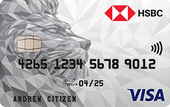
Highlights
- 0% p.a. for 12 months on balance transfers with a 2% fee.
- A low ongoing 12.99% p.a. purchase rate.
- No overseas transaction fees and complimentary domestic travel insurance.
Pros
Cons
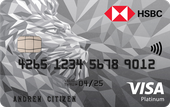
Highlights
- Avail of the 0% p.a. on balance transfers for 12 months with a 2% balance transfer fee.
- Enjoy the first year with no annual fee, then it's $149 per year afterward.
- Earn 2 Reward Plus points per $1 spent on overseas eligible purchases and 1 Reward Plus point per $1 spent for all other eligible purchases.
- $6,000 minimum credit limit.
Pros
Cons
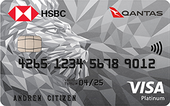
Highlights
- Earn 1 Qantas Point per $1 spent up to $1,000 each month, then 0.5 Qantas Points. Capped at 7,500 per statement period).
- 0% p.a. for 12 months on balance transfers with no balance transfer fee. (Reverts to cash advance rate is 21.99% p.a.)
- Comes with complimentary travel insurance and purchase insurance.
Pros
Cons
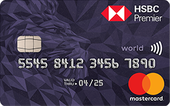
Highlights
- Convert earned HSBC Premier Rewards Plus points to three airline programs: Velocity, Asia Miles, and KrisFlyer at the rate of 2 HSBC points to 1 air mile point.
- Complimentary membership to Qantas Frequent Flyer if you aren't already a member.
- Enjoy Complimentary insurance benefits: Domestic and International Travel Insurance, Transport Accident Insurance, Extended Warranty Insurance, and Price Protection Insurance.
Pros
Cons
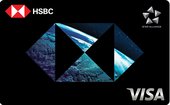
Highlights
- Fast track to Star Alliance Gold Status when you spend $4,000 or more on eligible purchases in the first 90 days from account opening. Terms and Conditions apply.
- $0 annual fee for the first year ( $450 p.a. thereafter).
- Earn 1 point per $1 spent up to $3,000 per statement period and 0.5 points thereafter.
